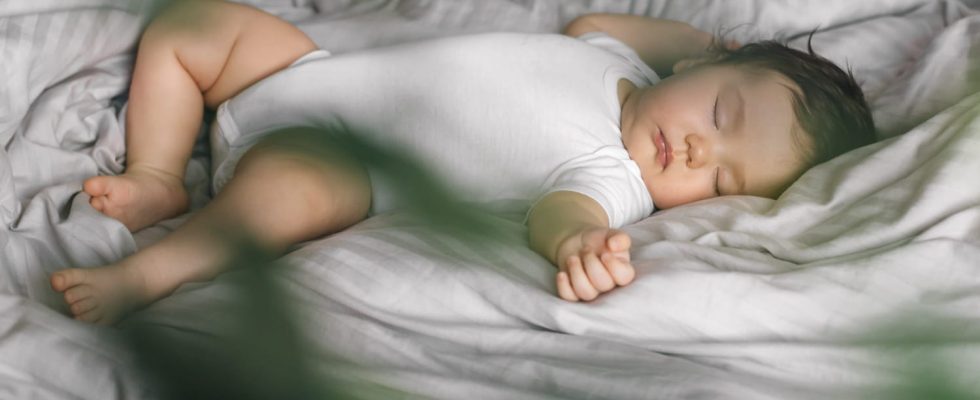It happens that some babies do not fall asleep before 10 p.m. How can you help him find the right sleep pattern and get him to bed earlier? Advice from Sandra Menoni, baby sleep specialist.
Everyone sleeps at night and is active during the day, this is called the circadian rhythm. This one is not mature at birth, so it is perfectly normal that the newborn cannot distinguish between day and night. Light is of major interest in the internal clock, because it allows for long activity phases during the day and restful sleep at night. But what to do when baby falls asleep too late at night? Sandra Menoni, founder of la nuit des petits, sleep specialist for children from 0 to 6 years old, gives us her advice to help babies fall asleep earlier.
What should I do if my baby does not fall asleep before 10 p.m.?
“A child who falls asleep too late at night is a child who wakes up too late in the morning, which means that his waking time between when he wakes up in the morning and when we would like to go to bed is too short”, explains the specialist. On average, this moment lasts 13 hours. In other words, a child who gets up at 7 a.m. and goes to bed between 7:30 p.m. and 8 p.m. with one or two naps, this is ideal for a 1-year-old child. “If the child goes to bed around 10:30 p.m./11:00 p.m. while waking up around 9:00 a.m./9:30 a.m., bedtime and morning time must be brought forward”, develops Sandra Menoni.
“If the child goes to bed around 10:30/11 p.m. when he wakes up around 9/9:30 a.m., bedtime and morning time must be brought forward”.
Why do babies fall asleep late at night?
Falling asleep late can also be due to excessive fatigue since the child is too tired because the nights are bad and the naps too short. During the day, the child produces cortisol, the hormone of awakening and stress. “When he is tired, the brain releases more cortisol which will give the child an extra boost and mask his signs of fatigue. At the end of the day, where cortisol should drop to make way for melatonin, the two hormones come into conflict: cortisol says “I’m too tired, but I can’t turn off my wakefulness system” and the melatonin can’t get the child to let go. It is then essential to accompany the child to sleep, because he is too tired to fall asleep alone., explains the sleep consultant.
No late afternoon nap
Another parameter that can impact falling asleep at night: the number of naps. “A child taking two naps as they begin their transition to a nap indicates that the rhythm needs to be reviewed. It is important to keep the child awake and not to let him fall asleep at 5:30 p.m. because this delays falling asleep.“explains our interlocutor.
